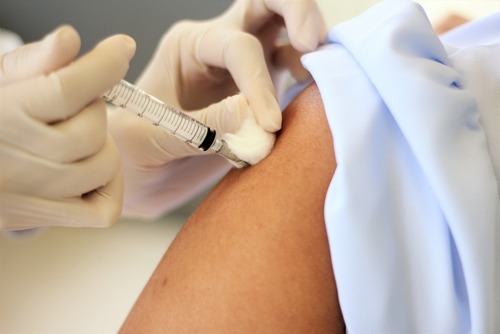
Following its development by scientists at the National Institute of Allergy and Infectious Diseases (NIAID), the U.S. National Institutes of Health (NIH) began a human, phase one clinical trial to determine the safety and immunogenicity of a nanoparticle-based, universal influenza vaccine.
Universal means the vaccine could theoretically provide long-lasting protection against multiple flu virus strains. Unlike standard influenza vaccines, the universal vaccine would not need to be reformulated and administered annually to match changes in the viral strains. Known as FluMos-v1, the candidate works to stimulate antibodies against these strains through displaying part of the influenza virus hemagglutinin protein on self-assembling nanoparticle scaffolds.
It will be tested on 35 healthy participants between 18 and 50 years old at the NIH Clinical Center in Bethesda, Maryland. There, participants will either be given the new vaccine or a traditional, licensed seasonal flu vaccine.
“The health and economic burdens of influenza are substantial, and the world badly needs improved flu vaccines,” Dr. Anthony Fauci, NIAID director, said. “I am encouraged by the great promise of the VRC nanoparticle vaccine candidate, which so far has performed very well in pre-clinical testing.”
The end goal is to potentially eliminate the need for annual vaccinations for the flu. So far, in animals, FluMos-v1 has performed well or even slightly better than commercial vaccines for eliciting antibodies. It also greatly outperformed the seasonal flu vaccine in terms of antibodies produced for two flu type A subtypes not in the vaccine. These results were based on NIAID’s Vaccine Research Center tests on mice, ferrets, and monkeys.
In this first human trial, 15 participants will receive a seasonal vaccine. Another five will be given one 20-microgram (mcg) dose of the investigational vaccine, followed by another 15 being given a 60 mcg dose if no safety concerns arise. All will return periodically to the NIH Clinical Center for studying over the course of 40 weeks.




